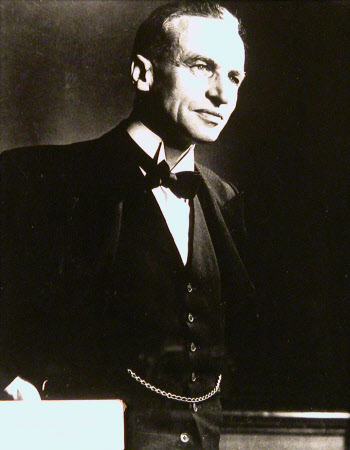Archibald Henry Macdonald Sinclair, 1st Viscount Thurso, KT, CMG (1890-1970)
Category
Photographs
Date
Unknown
Materials
Photographic paper
Order this imageCollection
Chartwell, Kent
NT 1102622.3
Summary
Facsimile of a photograph of Lord Thurso, in a black frame
Provenance
Archibald Sinclair (later Lord Thurso in 1952) developed a close friendship with Winston Churchill in the years leading up to the outbreak of the First World War. The two men had very similar personal lives both having American mothers, fathers who died from venereal disease and nannies who played a key role in their lives. Sinclair is often described as Churchill’s protégé and in April 1914 Churchill tried to assist with his political career arranging meetings with Liberal officials. Despite this some members of the cabinet such as J.T. Moore-Brabazon claimed that Churchill bullied Sinclair, however others say that Sinclair and Churchill had more of an uncle and nephew type relationship. In fact their close relationship can be seen when Sinclair was made Commander Jack Seeley’s aide-de-camp to the Canadian Cavalry Brigade during the First World War, Churchill wrote to Seeley stating “…do not get Archie into trouble.” Churchill was also extremely pleased whenever Sinclair succeeded and disappointed when he was not promoted as Churchill thought he should be. Sinclair was elected a Liberal MP in 1922 and in 1931 joined the National Government, where he was appointed Secretary of State for Scotland. In 1935 Sinclair was made leader of the Liberal Party and remained so until 1945. During the Second World War Churchill made Sinclair Secretary of State for Air. Following the end of the war Sinclair failed to win both the 1945 and 1950 elections and went on to accept a peerage.
